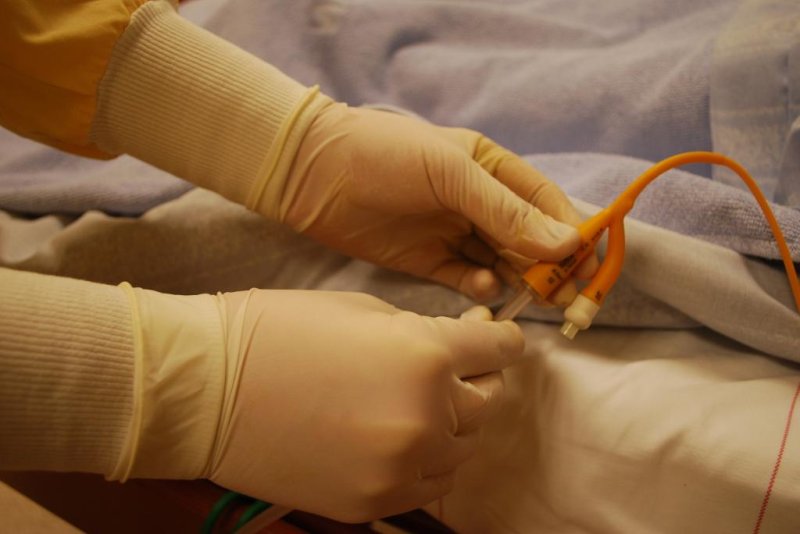St. Judge Children's Research Hospital researchers found young cancer patients who received treatment to reduce bloodstream infections from central line catheters had a higher rate of recurrence and complications. Photo by
eliola/pixabay
June 6 (UPI) -- Young cancer patients who received treatment to reduce bloodstream infections from central line catheters had a high rate of recurrence and complication, according to a study.
Investigators at St. Jude Children's Research Hospital in Memphis, Tenn., studied the effectiveness of ethanol-lock therapy for the patients with central venous catheters, finding they are largely not as effective as saline. Their findings were published Tuesday in the journal The Lancet Infectious Diseases.
To make it easier to draw blood and deliver chemotherapy, fluids and other treatments without constant needle sticks, central lines are surgically implanted and connected to the bloodstream. But about 25 percent of pediatric cancer patients develop central line-associated bloodstream infections.
The researchers said the treatment has been commonly used around the world in patients with central lines, but it had not been rigorously tested.
"Ethanol-lock therapy works in the laboratory to kill even tough-to-eradicate bacterial communities called biofilm," Dr. Joshua Wolf, an assistant member of the St. Jude Department of Infectious Diseases, said in a press release. "We knew anecdotally that ethanol-lock therapy is used at many hospitals in an effort to prevent new or recurring central line bloodstream infections in children with cancer."
Researchers recruited 94 patients between the ages of 6 months and 24 years old being treated at St. Jude and in Australia at the Royal Children's Hospital in Melbourne between 2011 and 2016. They were randomly assigned to nearly six months of central line treatment with 70 percent ethanol solution or saline solution.
They found ethanol-lock therapy was no better than saline solution at preventing new or repeat bloodstream infections. In addition, placebos and the treatment were the same in reducing central line replacement surgeries.
Patients who received ethanol therapy were 2.5 times more likely than patients in the placebo group to develop catheter blockages that required blood thinners.
Specifically, 44 percent of patients in both groups developed new or recurring infections or required surgical replacement of central lines. And 58 percent of patients in the ethanol group needed blood-thinners to open blocked central lines, compared with about 33 percent in the placebo group.
"Based on these results, ethanol-lock therapy should not be routinely used in children with cancer or hematologic disorders," Wolf said. "Serious bacterial infections remain a life-threatening problem that is the focus of intensive ongoing research."















